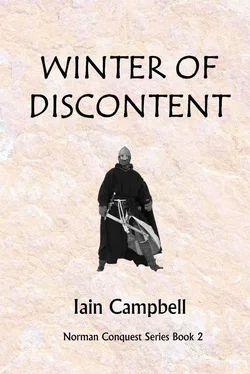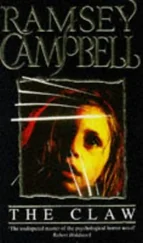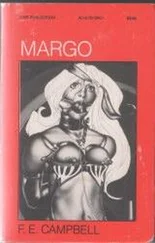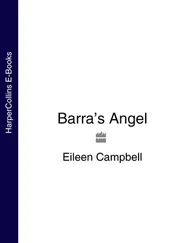Iain Campbell - Winter of Discontent
Здесь есть возможность читать онлайн «Iain Campbell - Winter of Discontent» весь текст электронной книги совершенно бесплатно (целиком полную версию без сокращений). В некоторых случаях можно слушать аудио, скачать через торрент в формате fb2 и присутствует краткое содержание. Жанр: Исторические приключения, на английском языке. Описание произведения, (предисловие) а так же отзывы посетителей доступны на портале библиотеки ЛибКат.
- Название:Winter of Discontent
- Автор:
- Жанр:
- Год:неизвестен
- ISBN:нет данных
- Рейтинг книги:3 / 5. Голосов: 1
-
Избранное:Добавить в избранное
- Отзывы:
-
Ваша оценка:
- 60
- 1
- 2
- 3
- 4
- 5
Winter of Discontent: краткое содержание, описание и аннотация
Предлагаем к чтению аннотацию, описание, краткое содержание или предисловие (зависит от того, что написал сам автор книги «Winter of Discontent»). Если вы не нашли необходимую информацию о книге — напишите в комментариях, мы постараемся отыскать её.
Winter of Discontent — читать онлайн бесплатно полную книгу (весь текст) целиком
Ниже представлен текст книги, разбитый по страницам. Система сохранения места последней прочитанной страницы, позволяет с удобством читать онлайн бесплатно книгу «Winter of Discontent», без необходимости каждый раз заново искать на чём Вы остановились. Поставьте закладку, и сможете в любой момент перейти на страницу, на которой закончили чтение.
Интервал:
Закладка:
As Alan had been away in December when the Hundred Court had been in session, Leofstan, the thegn from Great and Little Holland and the second largest landholder after Alan, had taken that duty. However he had bound over the more serious cases to be heard when Alan and Osmund were present, as Osmund’s understanding of the law and his ability to find the correct sections in the court text-books was the best in the Hundred. This meant that the list for the January sittings starting on Monday 21st, the Saint Day of St Agnes, was very long. Indeed, it appeared that the late autumn and early winter had been a period of considerable petty lawlessness in the Hundred, particularly in the manors held of the Bishop of London at Clacton and St Osyth by his men Normans Roger de Montivilliers, Geoffrey of Rouen and Fleming Albyn of Bruges, and the young French Angevin Gerard de Cholet who was tenant of Sheriff Robert fitzWymarc’s village of Elmstead.
Sitting jointly in the Old Hall with Leofstan and thegn Godwin of Weeley, Alan heard the usual litany of minor crimes. Assaults, petty theft, two counts of illegal possession of animals and illegal intercourse (with women, not animals). There were also serious crimes of theft, rapes and two cases of unlawful killing. Civil cases were also listed for hearing, one of selling a sick cow and two cases of encroachment on the land of another.
West Saxon law required that the person laying the complaint give oath in support of his claim. Each freeman was required to be a member of a frithbogh of ten men, who gave oath as to his truthfulness. They were also the tithing of ten men who would, if he was found guilty, share in the payment of the required bot , the fine or compensation. A freeman could compound his penalty for serious crime by paying an amount equal to his wergild , which was 200 shillings for a cheorl, cottar or sokeman. A thegn’s wergild was 1,200. Such amounts were usually totally beyond the ability to pay of the individual man, and often also of the tithing- although the prospect of being hung from the gallows-tree did tend to make men undertake their best efforts to find the required funds when needed. Many of the theows or slaves in England had become enthralled due to inability to pay the bot or compensation required for breaches of the law.
Cases were not brought lightly. A person making accusation found to be false was heavily fined if the court found that the actions had been brought with malice; those convicted of perjury faced eternal damnation by being forbidden to be shriven or buried in consecrated ground. These were simple country people who believed in the truth and for whom the penalty for perjury was treated with the utmost seriousness and fear. Cases of mis-identification were rare as they lived in small tight-knit communities where all knew each other well, and those from neighboring villages at least by sight. Few of the cases were disputed.
The minor cases usually took little time as the defendants mostly pleaded guilty and paid the small fines of a few shillings for injury to their victims. Injuries such as bruising, loss of teeth, broken bones etc each had a set compensation bot specified in the Dooms which formed the English written law.
They then moved on to the more serious cases. As usual in rape cases they turned on the question of consent. One man was acquitted through lack of certainty on the part of the judges regarding his understanding as to whether the wench was consenting or merely submitting. He was, nevertheless, ordered to pay bot to the girl of twelve shillings. The other man was convicted. Neither he nor his frithbogh could pay his wer , and so he was hung from the gallows-tree to the delight and entertainment of the villagers. One of the unlawful killing cases was found to be justified by self-defence. In the other the case man was convicted and sent to be held at the gaol in Colchester until the wer of 200 shillings was paid, the frithbogh saying it would take time to sell cattle and swine to enable payment.
One man, a Norman of low class from the village of Elmstead and in the employ of Gerard de Cholet, was convicted of theft. Without the option of payment of wer , as Norman law applied to him, his right hand was struck off and he was forced to abjure the Hundred. As there was a blizzard blowing at the time, and weakened by blood loss, it was unlikely that he would have made it as far as Colchester. Most probably a hungry wolf in the forest near Alresford ate well that day.
The cases were now heard in the Old Hall at Thorrington village, instead of the previous use of the tithe-barn. Given the warmth inside and the appalling weather outside, the Hall was packed with people with nothing better to do. Godwin and Leofwine were in no hurry to finish, both being provided with snug quarters at the fortified New Hall, and they decided to deal fully with all pending matters, spending five days to achieve this. They were assisted on several days by thegns Edwald of Alresford, Bondi of Ardleigh, and by special invitation for the first time the Englishman named Leax, formerly of Hertfordshire. He was Engelric’s newly-appointed steward to the lands he held of St Paul’s of London at Birch Hall. With the additional judges two courts were able to be held, one at each end of the Hall, with the second using the services of Brother Wacian as scribe.
Lent had begun exceptionally early, Ash Wednesday being on the 6th February. As usual, Alan and Anne attended Mass on such a festival, together with nearly everybody in the village. As they walked across the small wooden bridge over the Alresford Creek Alan noted that the water of the stream was frozen solid.
Despite the packed humanity it was bitterly cold in the small wooden church. The palm crosses from the previous Palm Sunday were burnt and the ashes mixed with Catechumens oil. Each person present had a cross traced on their forehead, Brother Wacian saying to each. “Remember, O man, that ye are dust, and to dust ye shall return.” The beautiful penitential Psalm 51 was read by the priest, not because he could not remember the words but so that he had the pleasure of handling the beautifully copied and leather-bound English-language bible that Alan had, as an act of contrition for his previous sins, presented the church the previous year. As with all services in the country that were held outside cathedrals or abbeys, the service was conducted in the Anglo-Saxon language and the simple village folk recited from memory the familiar required responses.
Accepted practice for Lent in this part of England was that two smaller than normal meals were permitted each day, but that red meat, fowl, eggs and dairy produce were not permitted except on Sundays- each Sunday being deemed a ‘mini-Easter’ Feast Day. Usually this would not have caused a problem, but Alan was concerned about the severity of the winter. He held Anne back after the service ended and asked Brother Wacian if they could talk. Brother Wacian led them into the rectory, where a warm fire was burning, and invited them to sit.
“Brother, I have concerns about the Lenten requirements this year. Lent is a time of prayer, penitence and self-denial, preparing us for Holy Week and Easter. This year, as Easter Day is very early, so is the commencement of Lent. In fact we celebrated Candlemas only three days ago! One day we are celebrating Christ’s presentation in the temple and nearly the next we are preparing for his death!
“This year is a very severe and hard winter. Our people are well-fed and usually well-provisioned. My concern this year is that when we are not having blizzards we are having strong winds. These are communities that rely on fresh fish, which are always abundant in the sea nearby, and we have little store of dried or salted fish. Our fishermen have hardly been able to get their boats in the water for two weeks. If this continues until Easter, our people are likely to be so weakened that they may have difficulty in performing the ploughing and manure-spreading the following month. Those who are pregnant such as Anne, or who are ill, would also weaken. May I ask that you grant a dispensation on each Sunday for the following week on those occasions the weather has prevented fishing for the preceding three days, permitting fowl to be eaten that week, in moderation and perhaps only once in the day?”
Читать дальшеИнтервал:
Закладка:
Похожие книги на «Winter of Discontent»
Представляем Вашему вниманию похожие книги на «Winter of Discontent» списком для выбора. Мы отобрали схожую по названию и смыслу литературу в надежде предоставить читателям больше вариантов отыскать новые, интересные, ещё непрочитанные произведения.
Обсуждение, отзывы о книге «Winter of Discontent» и просто собственные мнения читателей. Оставьте ваши комментарии, напишите, что Вы думаете о произведении, его смысле или главных героях. Укажите что конкретно понравилось, а что нет, и почему Вы так считаете.












